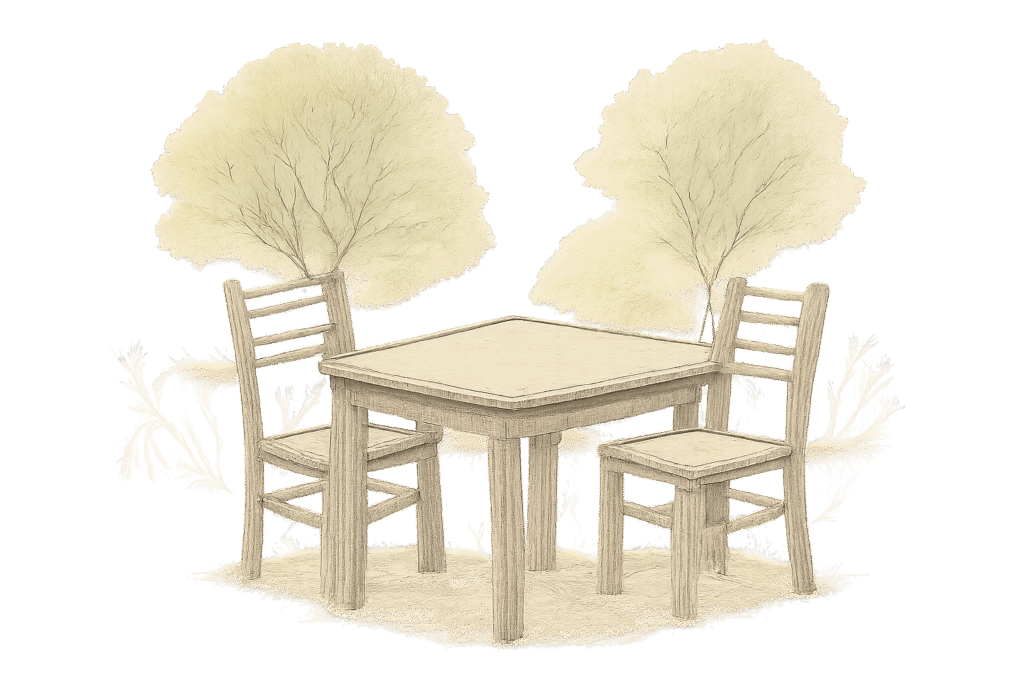A Space for Civic Dialogue and Conversation
More and more people, in the U.S. and around the world, are asking the question: Is democracy still working?
Some are disillusioned with the way power is wielded. Others, with the way it’s avoided. For some, the answer lies in strong leaders; for others, in smaller government. Some rail against elites, while others hope elites might save us. And many are retreating into ecosystems that reflect their own beliefs, unsure where to go next or who to trust.
What often feels missing isn’t just a better policy, though that is important. It’s space. Space to think more clearly. Space to ask harder questions. To hear, and be heard, across differences that aren’t reduced to hashtags or headlines. Space to rebuild something more essential: civic dialogue.
For the past nine years, I’ve had the chance to teach political science courses at the undergraduate and graduate levels. I came to academia later in life, earning a PhD in a collegial, public, land-grant university. I quickly fell in love with teaching. I’m currently a senior lecturer at the University of Maryland, College Park, and an adjunct lecturer at the Johns Hopkins School of Advanced International Studies (SAIS).
Over the years, I’ve watched students in my classes from a range of social, economic, and political backgrounds wrestle with difficult ideas, and with each other’s different views. Again and again, what I have seen is that real dialogue is possible. Students with incredibly divergent perspectives discuss, debate, disagree, and sometimes find common ground or broaden their perspectives. It’s rarely tidy. It’s not always persuasive. But it can be meaningful.
And here’s the thing: these kinds of conversations shouldn’t be limited to classrooms.
We need public spaces, figurative and maybe even literal tables, where people can gather to reflect, discuss, question, and connect.
The Citizens’ Table is an attempt to build one of those spaces. Not as a pundit, and not only as a teacher, but as a fellow citizen committed to thinking in public and to doing it with care, humility, and a sense of shared responsibility.
This isn’t a news site. It’s not commentary focused on chasing the day’s headlines. It isn’t a project rooted in one party or platform. And it’s not a space where we’ll all agree.
The Citizens’ Table is something else: a space for reflection, for dialogue, for wrestling with the words we use and the systems we live in. It’s a space that takes ideas seriously, not to win arguments, but to understand the ground beneath our feet. Citizen here emphasizes the practice of participation, attention and civic care. The table is a space to slow down, to speak honestly, and to listen carefully.
Some posts here will read like essays. Others may take the form of conversations, or dialogue-based explorations of key civic concepts like freedom, legitimacy, or the role of public institutions. At times, I’ll reflect on things I’ve encountered in the classroom or offer a critique of the world outside it.
All of it will grow from the same roots: the belief that democracy is more than a system, it’s a way of living together. And that means it’s also something we can practice, imperfectly, and hopefully, right here.
This space is grounded in a simple ethic: respect invites respect, and disagreement is normal. They’re habits I’ll practice here, in the hope that they help us stay in conversation, even when we differ.
In the coming essays, I’ll begin to trace some of the forces that have tested democracy’s resilience. I want to start by revisiting a time that once felt like democracy was on the ascent, and when the future seemed more hopeful. The next article, “Remembering the Optimism of the 1990s,” returns to that moment.
So, pull up a chair, the table is open.
© 2025 Allison Berland
